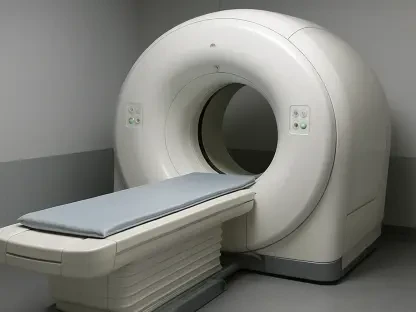In the rapidly evolving landscape of healthcare technology, artificial intelligence (AI) is taking center stage as the potential linchpin for streamlining a slew of complex processes. With venture capital pouring in upwards of $300 million in just the initial part of the year, specifically targeting AI’s role in enhancing electronic health record (EHR) systems, the industry is abuzz. This unprecedented financial endorsement, spotlighted in a report by Silicon Valley Bank (SVB), underscores a burgeoning excitement around AI’s capabilities to revolutionize administrative tasks—a perennial thorn in the side of healthcare efficiency.The frenetic pace at which investments are funneling into AI for healthcare isn’t without merit. Administrative AI tools alone have attracted $6.6 billion since 2021, a testament to the ardent search for solutions to the ever-present weight of administrative overhead. However, the impact of AI stretches beyond just administration. Clinical applications, such as patient triage, diagnostics, and remote monitoring, have garnered substantial funding as well, accumulating $12.5 billion over the same period. This financial magnanimity unearths the healthcare sector’s dual quest: to uplift not only the operational aspects but also the very essence of care delivery.









